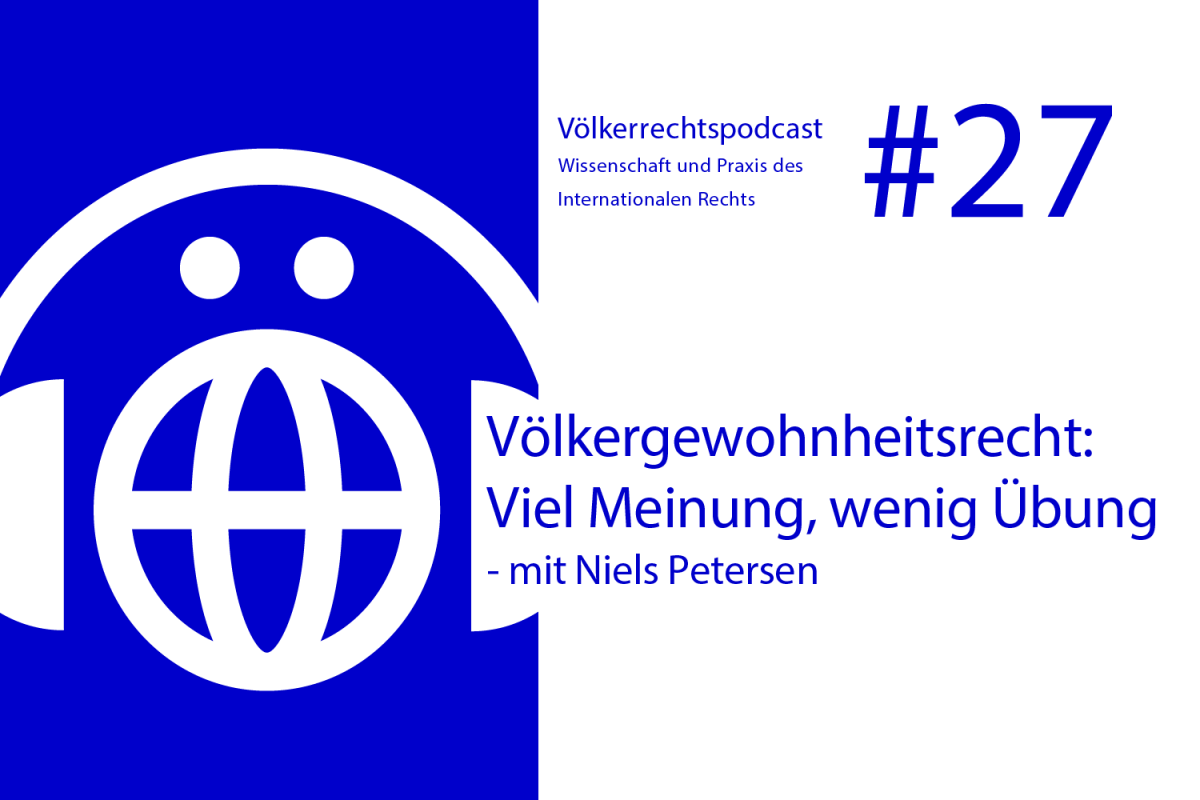Das „internationale Gewohnheitsrecht als Ausdruck einer allgemeinen, als Recht anerkannten Übung“ bringt – insbesondere für Jurist*innen, die kodifizierte, verschriftlichte Rechtsnormen gewöhnt sind – als Rechtsquelle des Völkerrechts nach Art. 38 IGH-Statut eine Vielzahl ganz eigener Schwierigkeiten mit. Isabel Lischewski erklärt im Grundlagenteil, wie sich die deutsche Nordsee in die Annalen des Völkerrechts verewigen konnte. Erik Tuchtfeld hat mit Niels Petersen darüber gesprochen, wie der Internationale Gerichtshofs (IGH) Völkergewohnheitsrecht feststellt und kritisch geprüft, ob dabei eine „allgemeine […] Übung“ tatsächlich eine Voraussetzung ist oder ob es in der Praxis nicht vielmehr genügt, wenn beide Streitparteien ganz viel Meinung mitbringen.
Wir freuen uns über Lob, Anmerkungen und Kritik an podcast@voelkerrechtsblog.org. Abonniert unseren Podcast via RSS, über Spotify oder überall dort, wo es Podcasts gibt.
Hintergrundinformationen:
- Niels Petersen, The International Court of Justice and the Judicial Politics of Identifying Customary International Law, European Journal of International Law 2017, 357
- Bruno Simma/Philip Alston, The Sources of Human Rights Law: Custom, Jus Cogens, and General Principles, Australian Year Book of International Law, 1988, 82
- ICJ, Judgment of 9 April 1949 – Corfu Channel (United Kingdom of Great Britain and Northern Ireland v. Albania)
- ICJ, Judgment of 20 February 1969 – North Sea Continental Shelf (Federal Republic of Germany/Netherlands)
- ICJ, Judgment of 27 June 1986 – Military and Paramilitary Activities in and against Nicaragua (Nicaragua v. United States of America)
Moderation: Erik Tuchtfeld, LL.M. (Glasgow) & Dr. Isabel Lischewski
Grundlagen: Dr. Isabel Lischewski
Interview: Prof. Dr. Niels Petersen & Erik Tuchtfeld, LL.M (Glasgow)
Schnitt: Daniela Rau
Credits:

Erik Tuchtfeld is a research fellow at the Max Planck Institute for Comparative Public Law and International Law (Heidelberg) and head of the humanet3 research group. He is an editor at Völkerrechtsblog.

Sophie Schuberth is a research fellow and PhD-candidate at Freie Universität Berlin, working in the Berlin Potsdam Research Group ‘The International Rule of Law- Rise or Decline?’. She is an editor at Völkerrechtsblog.

Philipp Eschenhagen is a research associate at Bucerius Law School and a PhD candidate at the Walther Schücking Institute for International Law. He is an editor at Völkerrechtsblog.


Dr. Isabel Lischewski is an Editor and Podcast Co-Host at Völkerrechtsblog as well as a post-doctoral researcher focusing inter alia on gender, governance, and education in international and German public law at University of Münster.